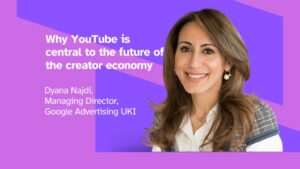By Kevin Sutherland, Strategy Partner, VOLUME
Who takes the credit for business transformation? The CEO? The CTO? Or COVID-19…
To state the bleedin’ obvious, things have been a bit different this year. Six years of innovation in six months is a phrase I’ve heard more than once. But it’s what happens next that could be really interesting. Rather than focusing on a return to normality or even the ‘next normal’ this is an opportunity to radically reinvent B2B marketing. And it’s already started.
This is an opinion piece so here’s some opinions.
The majority of B2B marketing strategy assumes rational decision-making on the part of buyers and underplays personal motivation.
B2B decision making may be more structured and predictable than B2C but however helpful they are for planning, funnels, pipelines, journeys, flywheels are poor descriptions of how people really behave.
The economics of Account Based Marketing don’t work for all businesses.
B2B brands, especially startups, are often initially built on performance marketing but if everyone in a sector focuses on performance it eventually becomes either a zero-sum game, or delivers diminishing returns for all.
There is still a role for white papers. Just don’t call them white papers. It’s the 21st century.
Most B2B marketing communications are dull.
There’s a new breed of agencies out there, broadly categorised as a “data, content and creative” movement, spearheaded by Sir Martin Sorrell’s G4S plus New Commercial Arts and Science Magic, both launched in 2020, but I don’t see anything comparable in B2B.
But things are starting to change.
Firstly, there’s the ‘consumerisation of B2B’, with more and more B2B comms adopting the warmth, humour, creativity and tactics of B2C. Initially credited to the balance in boardrooms tipping from Gen X to Y, this has been further accelerated by COVID, with the traditional lines between ‘work’ and ‘home’ being blurred for many and B2B brands adapting messaging, tone and experience to reflect this.
Secondly, there’s a growing recognition that the B2B buying process isn’t the rational ‘journey’ many believed. Back in the heady days of 2018, HBR published research from Bain and Co – The B2B Elements of Value – which found that the ‘higher value’ elements including fit with career goals, personal motivation and social purpose of the brand in question had a disproportionate impact on repeat buying, compared to lower value / functional elements such as cost, performance and ease of doing business.
And earlier this year in a, er, white paper for Linkedin’s B2B Institute, entitled ‘The Objectivity Trap’ advertising guru Rory Sutherland. Amongst other things he concludes that using behavioural science as your map in B2B marketing (when everyone else is applying received wisdom) is a source of competitive advantage, that what we categorise as rational decision making is actually driven by loss aversion, argues in favour of investment in building brand fame and focusing our creative thinking on long-term B2B marketing strategy over short term sales-driving B2B marcomms.
So what next?
COVID may be the catalyst for the reinvention of B2B marketing and a unique opportunity / incentive to innovate and experiment like never before. The question is ‘how’ One route for B2B marketers seeking reinvention is to study how Direct to Consumer (DTC) brands have rewritten the consumer marketing playbook, outflanking some of the biggest established brands in the process.
They have built business models, pricing, and distribution strategies without the benefit of brand fame or scale.
Their marketing and comms strategies are built on the mantra of ‘content, community and commerce’ not reach, frequency, or physical availability that require high spend.
They are founder-led, people-centric businesses, they operate in a modern, human way and they speak in a conversational tone.
They are purposeful from the start, often being created from a desire to do something better than the current alternatives. or to meet an unmet need.
They focus on new, next-generation, niche publishers, passion communities and fandoms for PR and brand partnerships in order to reach and engage deeply with audiences most likely to identify with innovators and new ideas.
And they don’t tend to work with established agencies, preferring to work with new DTC agency specialists or to work directly with strategic, creative and tech talent on a cost-effective, project by project basis, accessing the expertise they need from people motivated by change, reinvention and unencumbered by legacy structures, processes, hierarchies (and costs).
So maybe reinventing B2B starts by adopting a new mindset: DTB.












